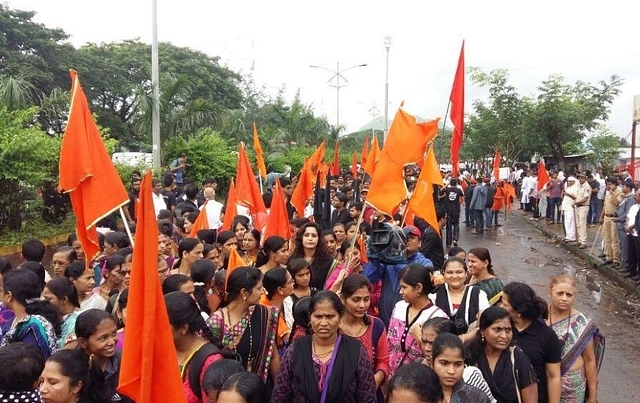
Maratha Assertion: Why The Mega Rallies Chose To Go Leaderless
The Maratha community members have come together to stage ‘leaderless’ mega rallies in Navi Mumbai and Solapur to seek justice for a 14-year-old rape victim.
The silent marches demanded capital punishment for the guilty, who were involved in the rape and murder of the Maratha girl in July. All three suspects arrested in the case are Dalits.
According to reports, the Navi Mumbai march saw 100,000 people, with the organisers putting the number at twice that. The Solapur rally drew a larger number, say organisers.
Some legislators from the Bharatiya Janata Party and Nationalist Congress Party, who took part in the rallies, said they were supporting the Maratha cause without any party affiliations.
Even though the Marathas have joined forces to make their
presence felt, they have chosen to go leaderless, unmindful of a potential polarisation
effect.
A reason could be the difficulty in finding a leader, who can openly take on other communities who they claim are favoured.
Incidentally, their current demands involve the interests of Dalits and Other Backward Class, and even the Muslims and Brahmins.
The decision to go leaderless could be also due to a lack of unity among Maratha leaders, and to steer clear of accountability in case of the rallies leading to violence and law order problems.
However, the organisation of leaderless rallies is a clever strategy, which seems to be working.
At the rallies, the Marathas called for reservations in education and government jobs and amendments to the Scheduled Castes and Scheduled Tribes (Prevention of Atrocities) Act to stop its “misuse against Marathas”. The Act grants SCs/STs legal protection against atrocities but Marathas claim they are being targeted with trumped up cases.
An activist of the Sakal Maratha Samaj, which has spearheaded most of these protests that began on 9 August, said the last protest march will be held in Mumbai city just before Diwali.